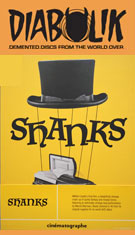
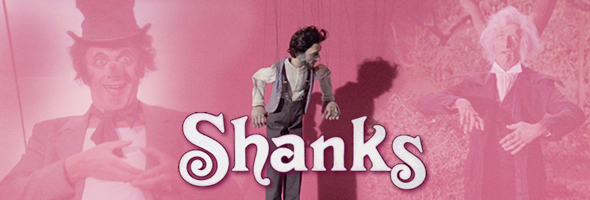
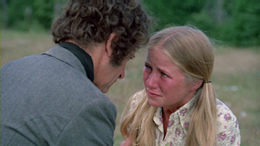 director/cinematic showman
director/cinematic showman 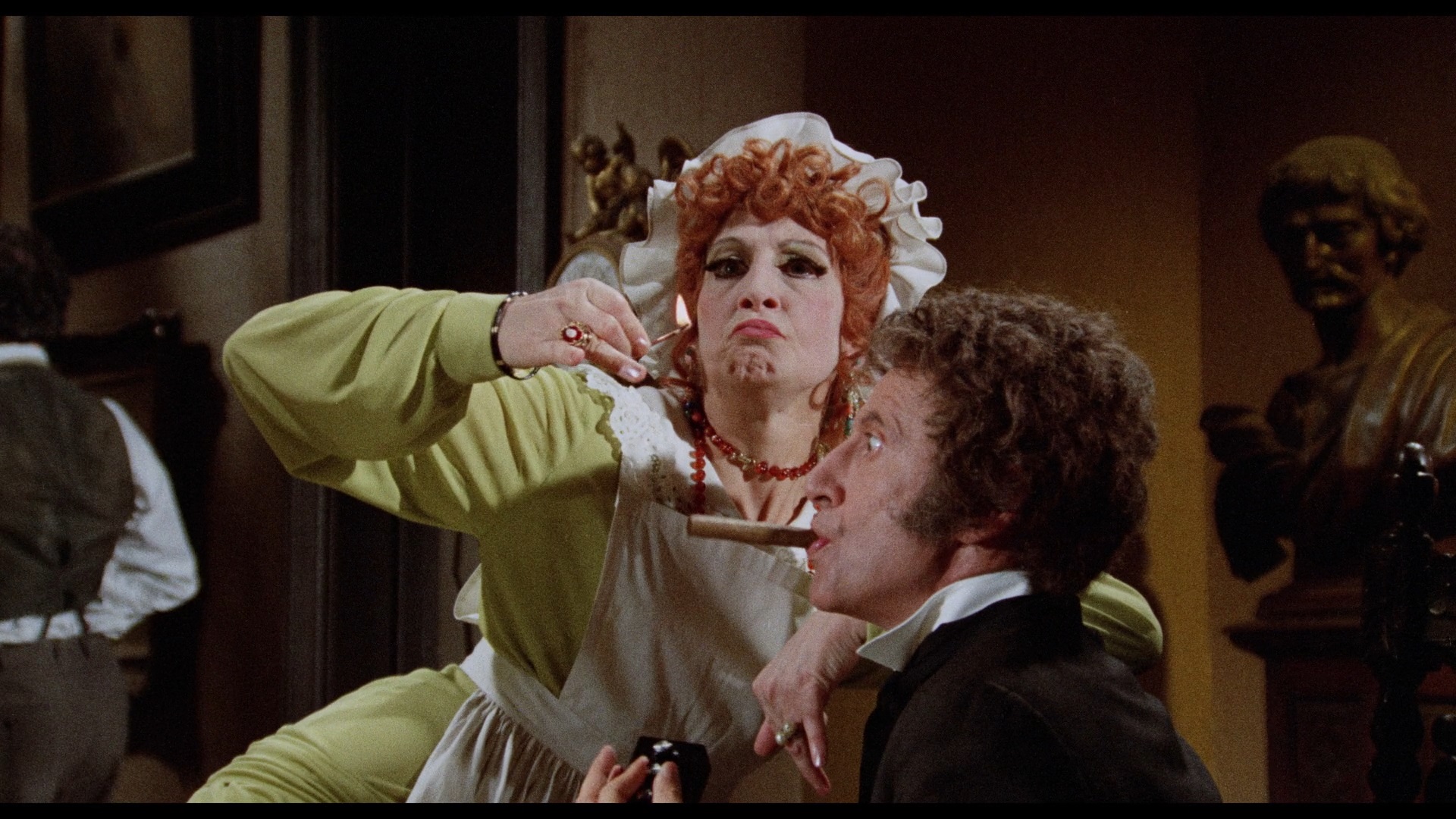 William Castle of tonal consistency. Best known as the independent force behind such gimmicky scare classics as The Tingler and 13 Ghosts, Castle also dabbled with a sometimes heavy hand in comedy, sci-fi, and westerns, all of which came out a little skewed thanks to his peculiar touch. However, nothing is as bizarre as his final directorial credit, the 1974 gothic "fairy tale" Shanks, which found him helming for the first time since 1968's Project X. Castle had made a comfortable home at Paramount by this point (no doubt helped by his producing the smash hit Rosemary's Baby), so he presumably had carte blanche to do whatever he wanted as long as the budget stayed modest. Of course, he was also busy with other projects like producing the nifty horror TV series Ghost Story (later changed to Circle of Fear), which had just gone off the air, and after this he would even produce the wacko nature revenge film, Bug. By the time he passed away in 1977, he'd certainly left behind a legacy unlike anyone else.
William Castle of tonal consistency. Best known as the independent force behind such gimmicky scare classics as The Tingler and 13 Ghosts, Castle also dabbled with a sometimes heavy hand in comedy, sci-fi, and westerns, all of which came out a little skewed thanks to his peculiar touch. However, nothing is as bizarre as his final directorial credit, the 1974 gothic "fairy tale" Shanks, which found him helming for the first time since 1968's Project X. Castle had made a comfortable home at Paramount by this point (no doubt helped by his producing the smash hit Rosemary's Baby), so he presumably had carte blanche to do whatever he wanted as long as the budget stayed modest. Of course, he was also busy with other projects like producing the nifty horror TV series Ghost Story (later changed to Circle of Fear), which had just gone off the air, and after this he would even produce the wacko nature revenge film, Bug. By the time he passed away in 1977, he'd certainly left behind a legacy unlike anyone else. 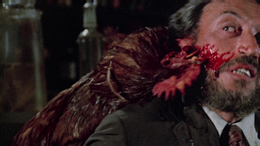 (Chelton) and her abusive husband (Clay), both of whom are obviously destined for a fate worthy of E.C. Comics. Things take a stranger turn when Shanks crosses paths with an old inventor, Old Walker (also Marceau),
(Chelton) and her abusive husband (Clay), both of whom are obviously destined for a fate worthy of E.C. Comics. Things take a stranger turn when Shanks crosses paths with an old inventor, Old Walker (also Marceau), 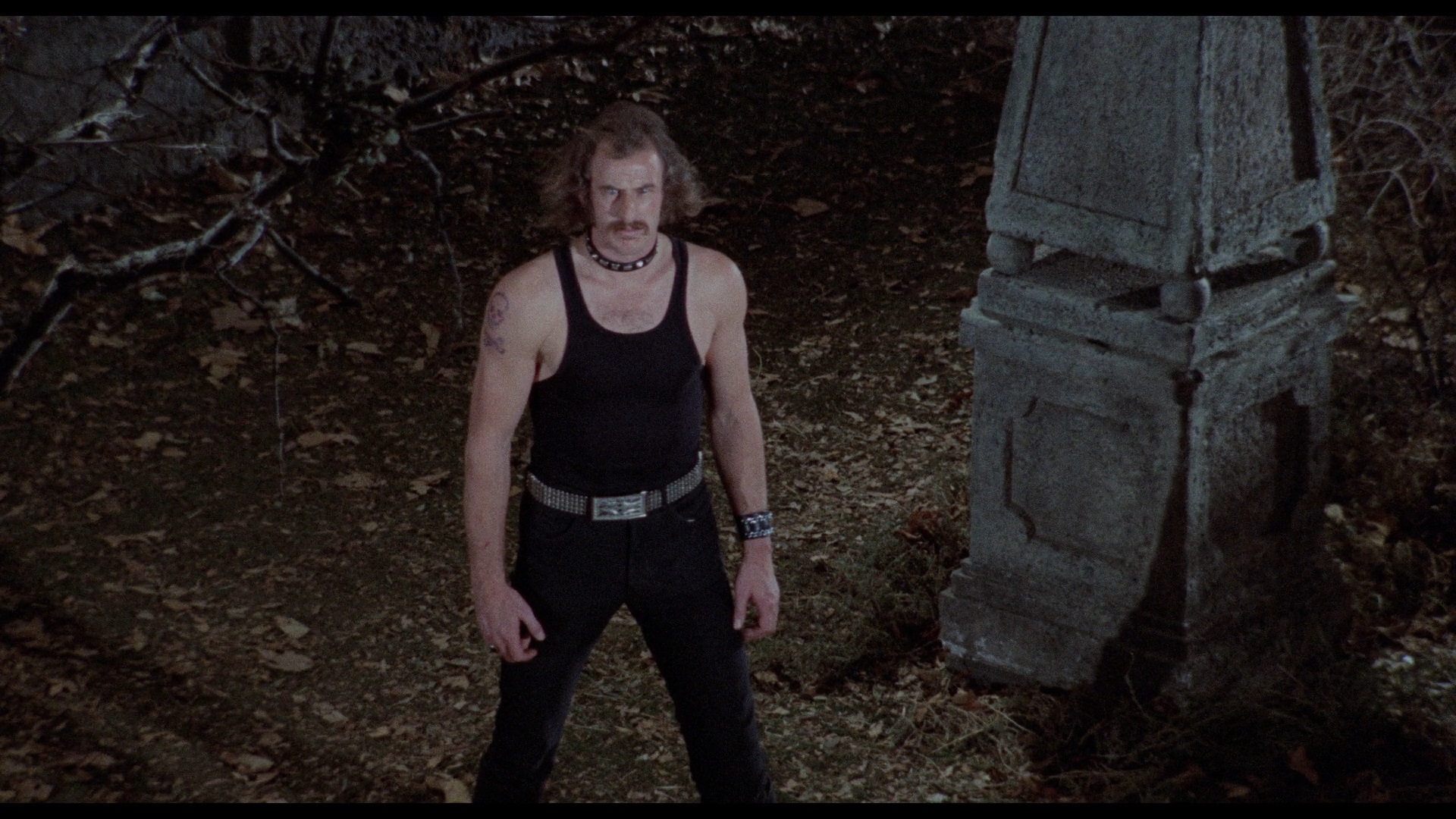 who lives on the outskirts of town in a spooky mansion. Shanks becomes his apprentice and learns how the application of electricity and a handy remote control can bring dead animals back to life and allow complete control of their basic motor functions; of course, when the old scientist dies, it's just a matter of time before Shanks figures out that this little trick might be applied to human bodies as well...
who lives on the outskirts of town in a spooky mansion. Shanks becomes his apprentice and learns how the application of electricity and a handy remote control can bring dead animals back to life and allow complete control of their basic motor functions; of course, when the old scientist dies, it's just a matter of time before Shanks figures out that this little trick might be applied to human bodies as well... 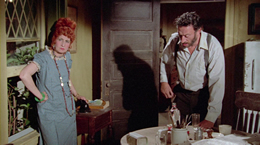 this was pegged as a horror film from the outset given the director and subject matter, though the actual experience is a little trickier to pin down; it has elements of black comedy, burlesque, fantasy, and sentimental drama, just for starters.
this was pegged as a horror film from the outset given the director and subject matter, though the actual experience is a little trickier to pin down; it has elements of black comedy, burlesque, fantasy, and sentimental drama, just for starters. 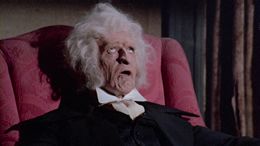 Then again you also get a killer zombie rooster and a third act invasion by murderous bikers (four years before Dawn of the Dead!), one of them played by Return of the Living Dead's Don Calfa, so maybe the horror label really does stick after all.
Then again you also get a killer zombie rooster and a third act invasion by murderous bikers (four years before Dawn of the Dead!), one of them played by Return of the Living Dead's Don Calfa, so maybe the horror label really does stick after all. 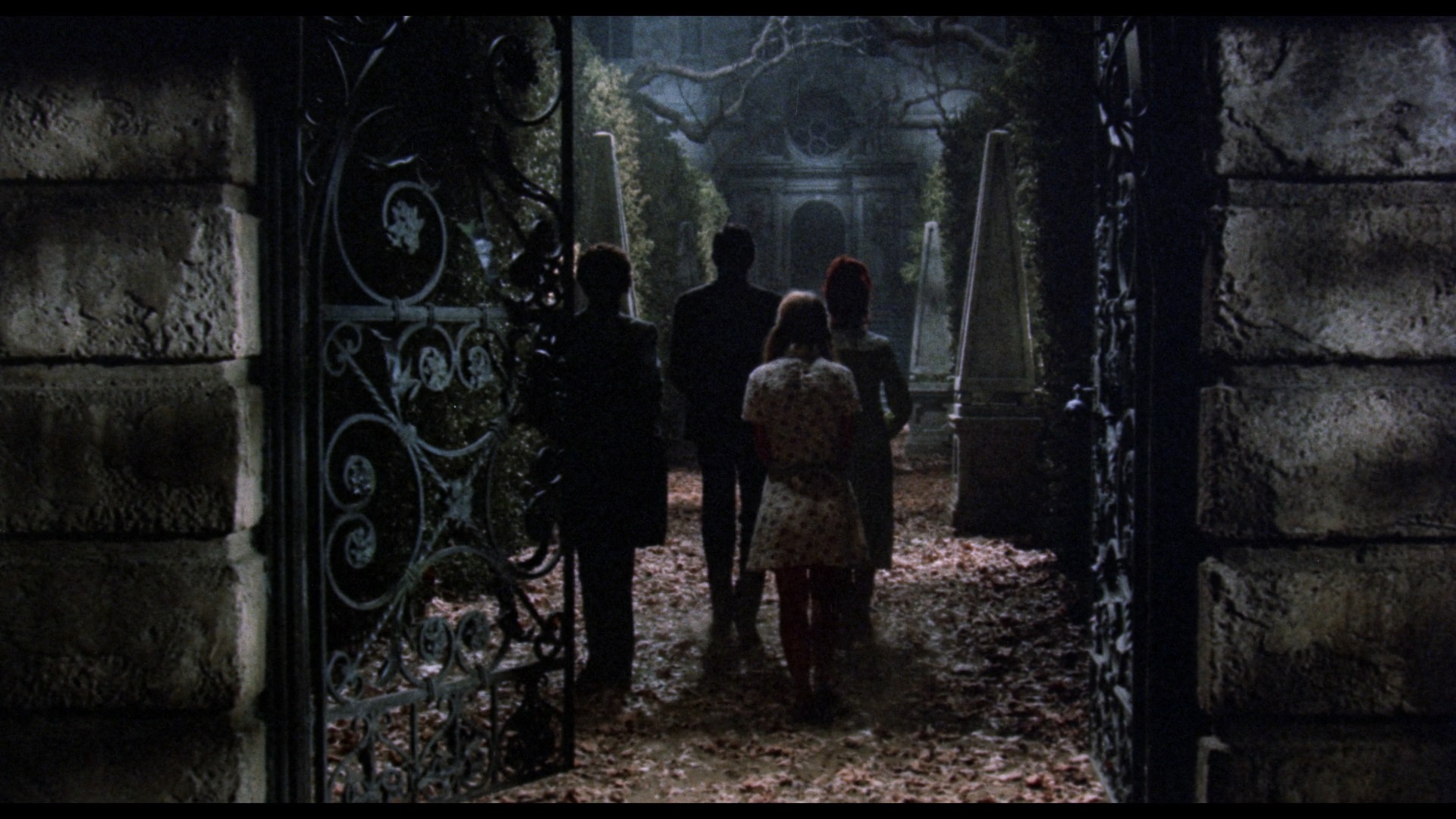 SDH subtitles (what few there are) provided. A new audio
SDH subtitles (what few there are) provided. A new audio 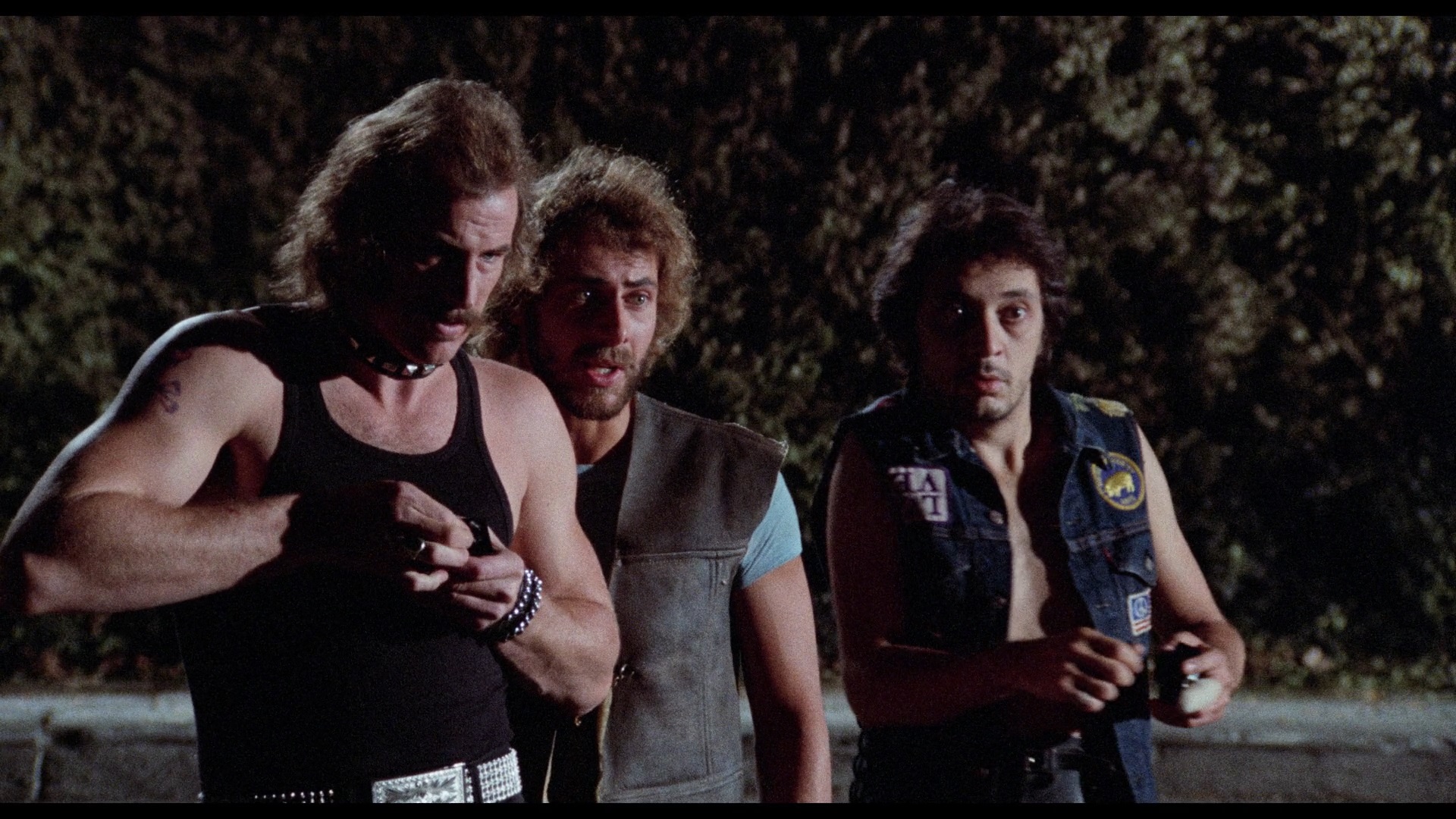 commentary by the reliable team of Kim Newman and Barry Forshaw covers everything you'd need to know including the state of Robert Evans-era Paramount at the time, the elements of past Castle films that trickle through here, the mingling of Gothic and modernism within a fanciful tale with deeply creepy undertones, Castle's treatment of children in his stories, the silent movie-style aesthetic, the back and forth between Castle and Hitchcock, and much more. "No Words for the Dead: Reanimating William Castle, Visual Language and The Path to Shanks (15m36s) is an intriguing video essay by Daniel Kremer about the warping of traditional cinematic storytelling, the odd history of "high concept studio filmmaking" going back to Gene Kelly, other neo-silent films in the modern era, and the role of Castle's showmanship instincts in this film. Also included are a vintage interview with Marceau (25m35s) about his experiences in Los Angeles, his desire to make fantasy versus horror here, his rapport with Castle, and his thoughts on the end result, and a 1m59s reel of radio spots. The packaging indicates a new interview with producer Steven North, but if it's on there, I couldn't find it. As usual, the deluxe packaging comes in a rigid case with an insert book featuring essays by Murray Leeder ("Our Play Is Played Out"), Heather Drain ("Puppets Are Nicer"), and Alexandra Heller-Nicholas ("Master of Puppets") each singling out points of interest in the film, covering the essentials of Castle and Marceau's achievements at play in the film, and contextualizing its still-disorienting mixture of genres and artistic elements.
commentary by the reliable team of Kim Newman and Barry Forshaw covers everything you'd need to know including the state of Robert Evans-era Paramount at the time, the elements of past Castle films that trickle through here, the mingling of Gothic and modernism within a fanciful tale with deeply creepy undertones, Castle's treatment of children in his stories, the silent movie-style aesthetic, the back and forth between Castle and Hitchcock, and much more. "No Words for the Dead: Reanimating William Castle, Visual Language and The Path to Shanks (15m36s) is an intriguing video essay by Daniel Kremer about the warping of traditional cinematic storytelling, the odd history of "high concept studio filmmaking" going back to Gene Kelly, other neo-silent films in the modern era, and the role of Castle's showmanship instincts in this film. Also included are a vintage interview with Marceau (25m35s) about his experiences in Los Angeles, his desire to make fantasy versus horror here, his rapport with Castle, and his thoughts on the end result, and a 1m59s reel of radio spots. The packaging indicates a new interview with producer Steven North, but if it's on there, I couldn't find it. As usual, the deluxe packaging comes in a rigid case with an insert book featuring essays by Murray Leeder ("Our Play Is Played Out"), Heather Drain ("Puppets Are Nicer"), and Alexandra Heller-Nicholas ("Master of Puppets") each singling out points of interest in the film, covering the essentials of Castle and Marceau's achievements at play in the film, and contextualizing its still-disorienting mixture of genres and artistic elements.Vinegar Syndrome Blu-ray
Olive Films Blu-ray
![]()